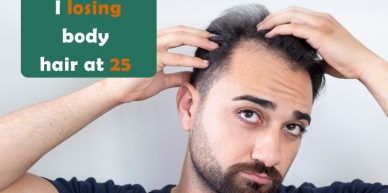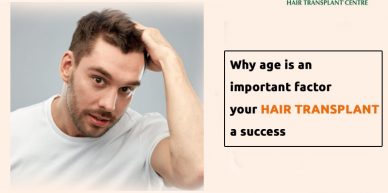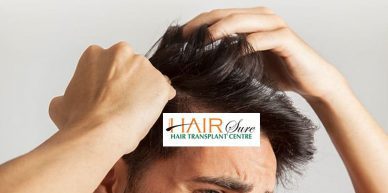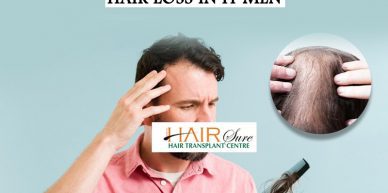Hair transplants are a cosmetic procedure for both men and women experiencing hair loss, often due to hereditary male or female pattern baldness. Hormonal changes, medical conditions, or trauma can also cause hair loss. The procedure involves taking hair follicles...
Why men are balding in their 30s?

Male pattern baldness, also known as androgenetic alopecia, is a common condition affecting men in their 30s. The exact cause is complex and not fully understood. Genetics and hormonal factors are significant contributors. The main reasons for men in their 30s experiencing baldness include hormonal changes, hormonal imbalances, and hormonal changes.
Reasons for men balding at the age of thirty:
Genetics:
- One of the most significant factors in male pattern baldness is genetics.
- If a man has a family history of baldness, particularly if his father, grandfather, or other close relatives experienced it, he is more likely to develop male pattern baldness himself.
- Specific genes inherited from both parents can make individuals more susceptible to hair loss.
Hormones:
- Hormonal changes, particularly an increase in dihydrotestosterone (DHT), can contribute to male pattern baldness.
- DHT is a hormone derived from testosterone, and it can shrink hair follicles, leading to thinner and shorter hair growth.
Age:
- With age, male pattern baldness tends to become more common.
- It often starts in the 30s or 40s but can occur earlier or later.
Stress:
- Chronic stress can contribute to hair loss, although it is not a direct cause.
- Stress can disrupt the normal hair growth cycle and may exacerbate hair loss in individuals who are genetically predisposed to it.

Lifestyle factors:
- Smoking, poor nutrition, and inadequate hair care can contribute to hair loss or worsen its progression.
- A healthy lifestyle, including a balanced diet and good hair hygiene, can help maintain hair health.

Medical conditions:
- Certain medical conditions, such as thyroid disorders and alopecia areata, can cause hair loss.
- Treating the underlying medical issue may help slow or reverse hair loss.
Medications:
- Hair loss is a side effect of some medications, including some antidepressants, blood thinners, and chemotherapy therapies.
- If you suspect medication is the cause of your hair loss, consult with a healthcare professional about potential alternatives.
Hairstyling practices:
- Excessive tension on the hair due to tight hairstyles (like cornrows or ponytails) can lead to a type of hair loss known as traction alopecia.
Diet and nutrition:
- Poor dietary choices and nutritional deficiencies can impact hair health.
- Ensuring a diet rich in essential nutrients, such as vitamins, minerals, and proteins, is important for maintaining healthy hair.
Male pattern baldness is a condition that can vary in severity and progression among individuals. Treatments for hair loss can be over-the-counter or prescription, but their effectiveness varies. Consultation with a healthcare professional or dermatologist specializing in hair loss can help determine the most suitable course of action. Early intervention may be more effective in preserving existing hair. Not all men will experience balding, and the severity and pattern of hair loss can vary widely. For other people, hair transplantation is another possibility.
It is advisable to consult a dermatologist or healthcare professional for personalized evaluation and treatment options. Early intervention can help slow the progression of
male pattern baldness and preserve existing hair.
Precautions to follow by men at thirty from getting baldness:
To prevent or slow down the progression of baldness, individuals can take several precautions and tips, including avoiding harsh chemicals, maintaining a healthy lifestyle, and avoiding excessive hair loss.
Maintain a healthy diet:
- Eat a nutritious, protein- and vitamin-rich, balanced diet.
- Hair needs nutrients like biotin, zinc, and iron for healthy growth.
- Include foods like leafy greens, eggs, fish, nuts, and lean meats in your diet.
Proper hair care:
- Use a mild shampoo and conditioner that are suitable for your hair type and devoid of sulfates.
- Avoid excessive washing, as it can strip your hair of natural oils.
- While you’re shampooing, give your scalp a little massage to promote blood flow.
Avoid tight hairstyles:
- Avoid hairstyles that put excessive tension on your hair, such as tight ponytails or braids.
- Choose looser styles to reduce stress on the hair follicles.
Avoid heat and chemicals:
- Don’t overuse hair dryers, curling irons, or straighteners.
- Excessive heat can damage hair.
- Minimize the use of harsh chemical treatments like perms and dyes, which can weaken hair.
Manage stress:
- Chronic stress can contribute to hair fall.
- Seek out products that encourage healthy hair and hair development.
Stay hydrated:
- Keep your scalp and hair moisturized by drinking enough water.
Get regular exercise:
- Regular physical activity improves blood circulation, which can benefit hair health.
Limit smoking and alcohol:
- Smoking and excessive alcohol consumption can be detrimental to healthy hair.
- Reducing or quitting these habits may help.
Avoid a crash diet:
- Rapid weight loss through extreme diets can lead to nutrient deficiencies and hair loss.
- Opt for gradual, sustainable weight loss methods.
Consult a healthcare professional or dermatologist:
- If you notice significant hair loss or thinning, consult a healthcare professional or dermatologist.
- They can help diagnose the cause and recommend appropriate treatments or lifestyle changes.
Consider hair loss treatments:
- There are over-the-counter and prescription treatments available, such as minoxidil and finasteride, that may help slow down hair loss and promote regrowth.
- Consult with a healthcare professional before using these treatments.
Hair care products:
- Choose hair care products that are suitable for your hair type and free of harsh chemicals.
- Consider purchasing items that support healthy hair regrowth.
Precautions can help maintain hair health and potentially slow hair loss, but male pattern baldness is primarily influenced by genetics. Despite the challenges, these steps can help maintain hair health and potentially delay the onset or progression of baldness in individuals with a strong family history.
At Cyber HairSure, we are dedicated to a policy of offering patients unmatched services. At Cyber HairSure Advanced Hair Transplant Clinic, all of your hair-related worries can be expertly resolved, and you can rest assured that your smiles won’t flinch again. Enter Cyber HairSure and exit with the desired appearance.
Cyber HairSure can assist in determining the precise reason for hair loss and offer suitable treatment solutions that are suited to the requirements of the individual. Always consult a medical expert when you have questions about your health. Always consult a medical expert when you have questions about your health.
We at Cyber HairSure, are committed to providing matchless services to all our patients. All your concerns regarding hair problems can be flawlessly sorted at Cyber HairSure Advanced Hair Transplant Clinic, guaranteeing that you will be left with smiles that won’t fall again. Walk into Cyber HairSure and walk back with the look that you desire. Call 040 49540202 / 8331020202 or email us at cyberhairsure@gmail.com to book your consultation. Visit our website, Hair Transplant Clinic, to know more.













